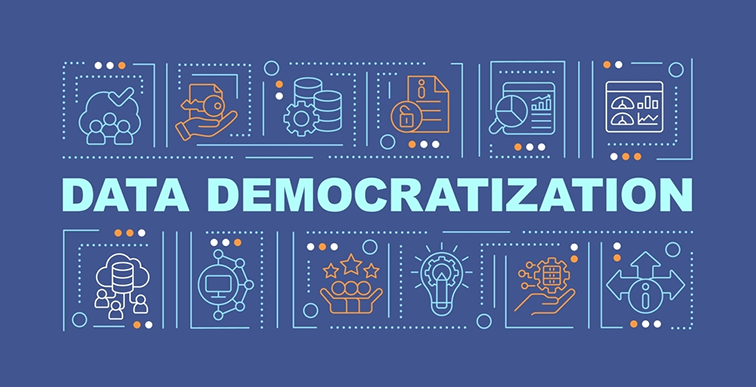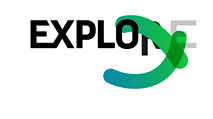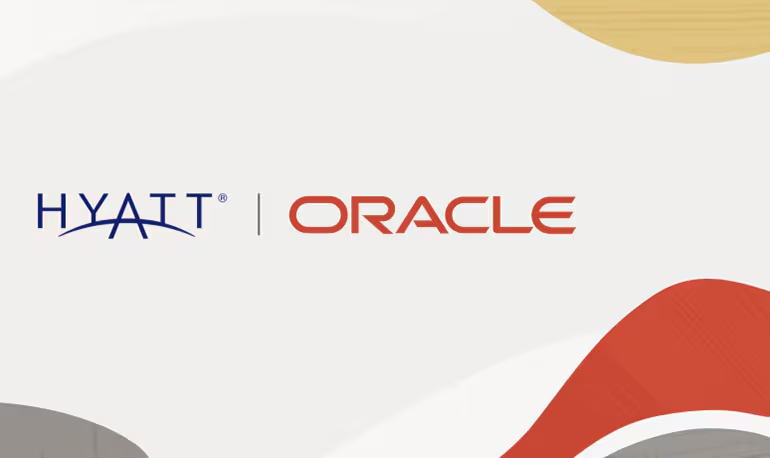

Today, most hotels possess more data than they know what to do with. And like most businesses that have jumped on the “data-driven” bandwagon, they quickly find themselves overwhelmed by the sheer quantity of data they end up with (to the point that some of what’s collected may fly under the radar).
Case in point: 2.5 quintillion bytes of data are generated every single day. And roughly 90% of all the data ever created was developed in the last two years. So, there’s definitely no shortage of data.
When such a plentiful supply of data is available, why are over half of the hospitality industry’s business decisions based on gut feeling rather than data? Some of the reasons could be related to not having the proper tools to analyze and synthesize the data. RMS tools built upon artificial intelligence, such as FLYRs Revenue Strategy Platform, deliver the best remedy.
But even within hotels with all the latest data analytics tech, a significant portion of revenue and inventory decisions are not based on that data. And that’s because the reports only end up on a few desks. In other words, while the data is being collected and analyzed, the resulting insights are not made available to all relevant stakeholders. And by “stakeholders,” I mean sharing the right data in the right tools at the right time with the right people.
The insights hidden in a hotel’s data must be extracted and shared to drive enterprise-wide performance improvements. Consider the following:
- Hotels that implement data democratization can reduce their operational costs by up to 20%.
- By leveraging data democratization, hotels can improve their customer satisfaction scores by 15%.
- Hotels that embrace data democratization see a 25% increase in direct bookings.
- Data democratization allows hotels to personalize guest experiences, leading to a 20% increase in repeat bookings.
- Hotels that adopt data democratization experience a 30% reduction in revenue leakage.
- By implementing data democratization, hotels can improve their revenue management efficiency by 25%.
Let’s look at the concept of democratizing data more closely to understand what it entails.
Data democratization and the beauty of controls
Data democratization is all about making data more accessible to everyone and is a growing trend. In fact, recent studies by Boston Consulting Group (BCG), Red Hat and Starburst Data predict a surge in data usage by non-technical professionals in the coming years.
It's meant to get rid of complex systems and barriers in the data access process, allowing more people to use data to improve their daily tasks. That means providing employees - and revenue managers in particular - with the right tools to use data in a cogent way relative to their roles. However, with increasing concerns over data security, privacy and compliance, access to information needs to be controlled. While the aim of data democratization is to boost accessibility, it requires effective controls and governance.
Data governance programs lay down the rules and methods for using and accessing data. They set quality benchmarks and detail the best ways to bring about effective data democratization. These programs also make sure the data is easily accessible, of high quality, and secure.
By tearing down data barriers, setting up solid data management rules, investing in easy-to-use data analysis tools, and promoting a data-focused culture, hotel operators can enable their teams to make improved decisions, inspire new ideas, and work together more efficiently.
The domino effect
Data democratization can provide multi-level benefits to hotels that implement that strategy. One could say it has a bit of a domino effect. Data-driven insights at lower levels can be used at other levels to produce better and more profitable outcomes.
Data from guest feedback (conversational analytics) can not only be used by your guest service department for real-time feedback in their customer interactions but can also provide the basis for improved training of representatives, services, amenities,
Moving further, revenue managers can leverage and analyze that same data over a specific time span to identify trends to adapt pricing, packages, and inventory decisions, leading to simultaneous growth and cost savings.
Benefits of Data Democratization
Unlocking the power of data for hotels through democratization brings a host of advantages. From supporting more informed decision-making to fostering a culture of agility, the impact can be transformative. Here are just a few benefits:
1. Empowered Staff
A deeper understanding of guest preferences and behaviors, derived from comprehensive data access, allows hotel staff to curate personalized services. Anticipating needs and tailoring experiences become second nature, enhancing overall guest satisfaction. If you trust your data and tools, the barriers to empowering your hotel staff in general, and your revenue managers in particular, to make data-driven decisions should naturally fade away. The data commands the decisions rather than the decision-maker’s instincts.
2. More Encompassing Insights
Making data insights accessible can improve your hotel’s management at all levels. For example, revenue teams can leverage data-driven decision intelligence to establish the most suitable room rates, project future reservations, estimate staffing requirements, manage inventory levels, and allocate other resources strategically. This approach aims to prevent impromptu procurement, excessive staffing during low-demand periods, and insufficient staffing during high-demand seasons.
3. Make Better Decisions Faster
Democratized data enables swift responses to shifts in market conditions, demand, and guest preferences, fostering an environment of agility. Having to make explicit requests for data to obtain it can create lengthy delays and revenue loss. Conversely, normalizing data access across the board allows hotel staff to analyze data for themselves, using their own queries and comparisons. This allows your teams to be on top of their game, providing timely insights for better resource optimization and creating a culture of adaptability and excellence.
The Future is Data
Data democratization is a game-changer for hoteliers. No more waiting on IT or rummaging through complex systems. With a single point of access, users can go to one location to search, find, and access the important data your property has. Everyone can take action based on real-time, reliable data. And the result? A more productive, efficient team powered by informed decision-making.
In the context of FLYR's revenue optimization and analytics suite, data democratization is crucial in empowering hotel executives and revenue managers to access the right data in the right tools at the right time, ultimately leading to increased profitability and guest satisfaction.
With FLYR, you have a reliable and user-friendly tool that allows limitless exploration of your data. Plus, sharing your findings through clear and compelling visuals is easy. FLYR enhances your productivity, helping you stay focused on the big picture: your larger strategic goals.
Contact us to find out how to elevate your portfolio and property strategies with invaluable insights and maximize your revenue potential.
About FLYR
FLYR is a technology company that is purpose-built for the travel industry. Leveraging deep learning, an advanced form of AI, FLYR is helping airlines, cargo, and hospitality businesses around the globe elevate their results. With FLYR, businesses are able to improve revenue performance and modernize the e-commerce experience through accurate forecasting, automation, and analytics. Learn more at flyr.com.
For more information visit flyr.com/hospitality.







